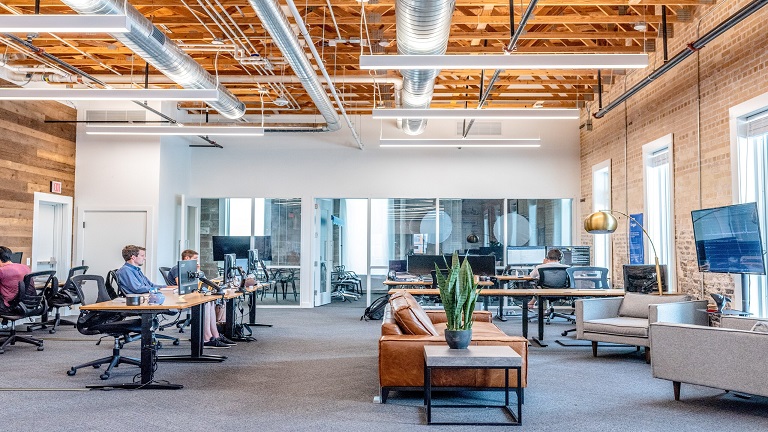
Industrial ventilation systems are very important systems in any industrial establishment. They keep the temperature consistent, air flow regular, and interiors comfortable. Further, they are instrumental in minimising air contaminants and maintaining the indoor air quality index. Industries are different from a Fresh air ventilation system for the home since it is subject to fumes, vapours, chemical dust and other gases. Special ventilation systems that can work in industrial settings are customised to suit that space and are often noisy. Many ventilation systems have noise control features, that help control and minimise noise. This is a vital part of ventilation system design since noise can be hazardous too, especially in a manufacturing or industrial setting.
What makes Ventilation System Noise Control Important?
Loud noise is known to cause discomfort and stress to employees. It directly interferes with concentration and communication, affecting the productivity and health of everyone in the vicinity. Industry noise is also known to cause anxiety and sleeping disorders.
Further, there are laws that require noise levels to be kept in check. In India, industrial noise permissible limits are 75 decibels for the day and 70 decibels for the night. Ventilation systems should not add to the existing noise levels. Ventilation system noise control is a great way to keep noise pollution in check.
There are many more detailed factors about why this is more important than it seems.
Employee Health and Safety:
In industries, this is usually the top priority. Noise from large industrial fans and exhausts can be extremely loud, and affect employee health negatively. Noise is known to be a trigger for irritation, anxiety and mood swings. Over a longer period, this can be permanently damaging. The structure of the human ear and internal systems are delicate and sensitive to pick up any sounds. Constant loud noises can permanently damage hearing, or cause loss of hearing. It also causes people to talk in a voicer louder than usual, a hearing of constant ambient humming sound, or a temporary hearing loss for some time after leaving the facility. This is 100% preventable, with proper noise level management. If this excessive noise is coming from the ventilation system of the industry, it is completely avoidable through noise cancellation measures. Employees are also provided with external noise-cancellation earphones or headphones that can help prevent noise exposure.
Legal compliances
Noise pollution levels are pretty unsupervised and unregulated on the ground. In a country where we are always in a celebratory mode, and gatherings are plenty, it is also difficult to set a code. That said, this does not mean we have none in place.
Earlier, noise pollution and sources of noise pollution fell under the gambit of the air pollution and prevention act, of 1981. However, in 2000, it was classified and has been since regulated separately under the Noise Pollution Regulation and Control Rules, 2000.
However, industrial noise is still governed by the 1981 Act, regulated by state and central pollution control boards.
In general to the human ear, any sound above 80dB is called loud, and anything above 125 dB is termed uncomfortable.
The permissible levels of noise in industrial areas are categorised accordingly, with levels not to exceed 75 dB. In commercial and public areas this level is capped at 65 dB and in residential areas it is 55 dB. During the night times, the levels are supposed to be lower since it would disturb everyone to a larger extent.
So, excess industrial noise levels could also be a breach of law. While we won’t get into the penalties part of it, the central idea is that noise pollution is both harmful and a breach of law.
Noise Control Solutions for Your Ventilation System:
Ventilation systems have noise control solutions that can do wonders. Some of them are generalised, and some can be tailored.
Industrial Ventilation System – operations:
In a few cases, the way the ventilation system is placed and operated could be the cause of the noise. The major reasons for these are higher fan speeds, improper usage of exhausts and filter placements.
Maintenance
Maintenance is another major avenue where noise escapes. Industries often handle a lot of raw materials and this could cause a build-up of dust and debris. Leaving it to operate in that condition would not just lead to poor efficiency of the system but also give rise to a lot of loud noise.
Noise-controlling mechanisms:
There is a lot of noise control and cancellation equipment that can be added to your existing industrial ventilation system. Some of them are silencers, acoustic padding and sound absorbers.
At Cleair, we are committed to creating comfortable environments for your homes and working through the best in Fresh Air Ventilation Systems for Commercial spaces. We offer customised solutions, and partner to solve your ventilation woes. Contact us to request a quote or reach out for a free consultation.


